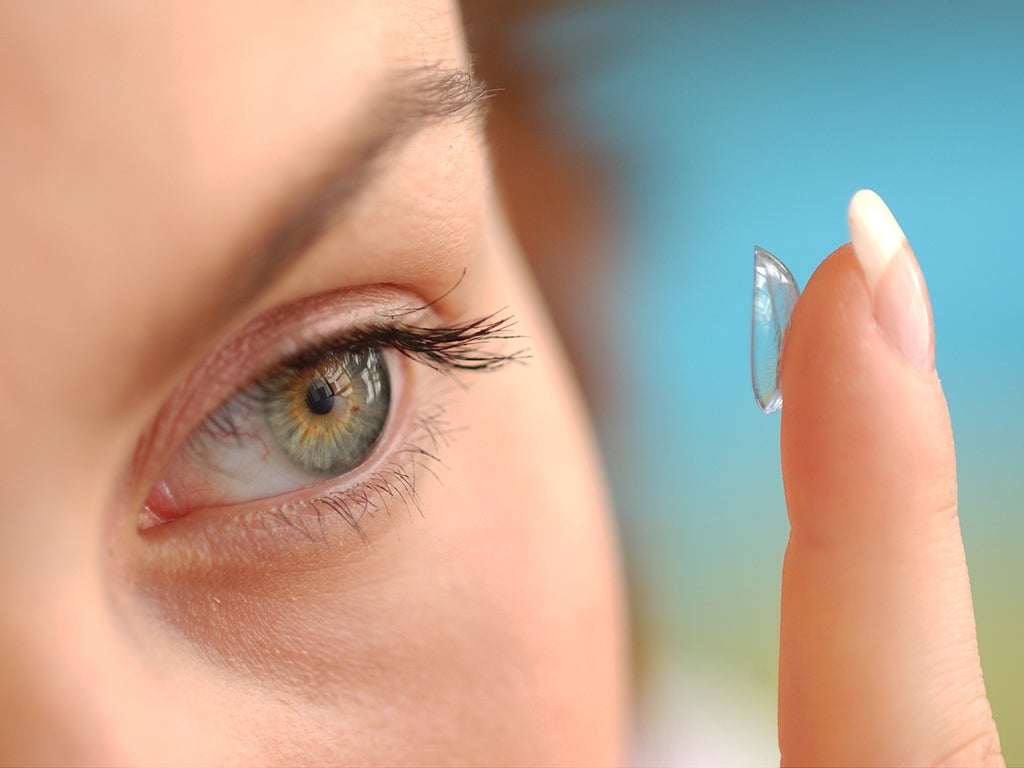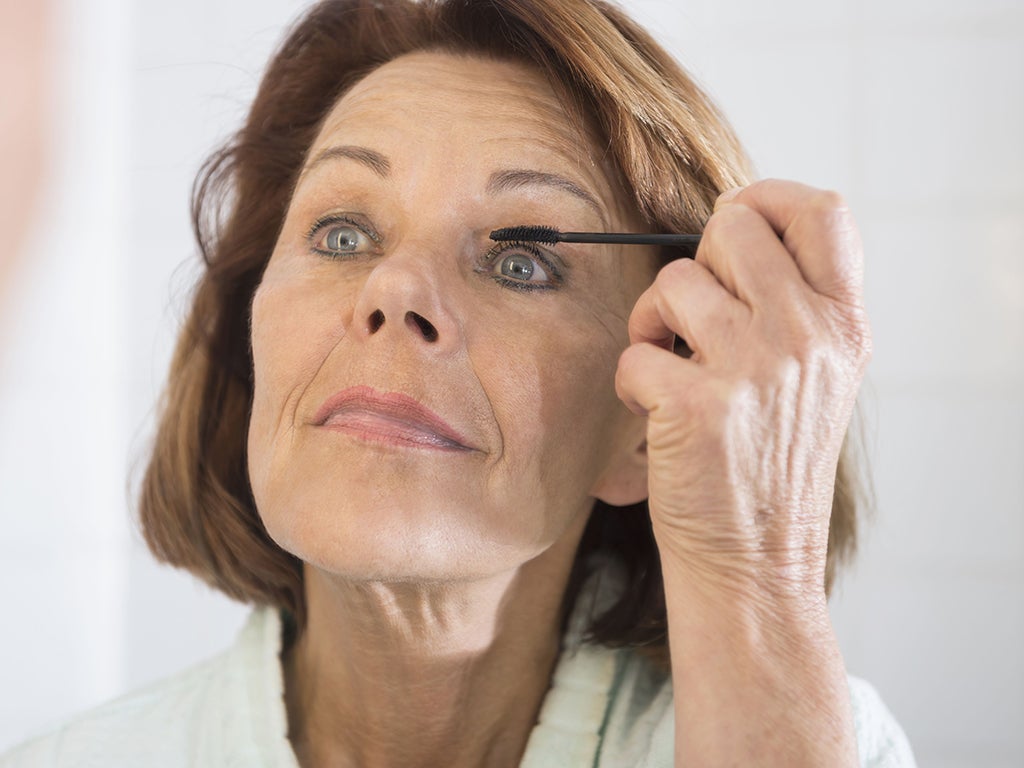How not to use contact lenses: Four common ways we risk eye health
A new report has found 99 per cent of those who wear contact lenses have engaged in at least one “contact lens hygiene risk behavior”. From beauty trends to everyday activities, improper use can lead can to extremely painful infections and potentially even blindness.

Your support helps us to tell the story
From reproductive rights to climate change to Big Tech, The Independent is on the ground when the story is developing. Whether it's investigating the financials of Elon Musk's pro-Trump PAC or producing our latest documentary, 'The A Word', which shines a light on the American women fighting for reproductive rights, we know how important it is to parse out the facts from the messaging.
At such a critical moment in US history, we need reporters on the ground. Your donation allows us to keep sending journalists to speak to both sides of the story.
The Independent is trusted by Americans across the entire political spectrum. And unlike many other quality news outlets, we choose not to lock Americans out of our reporting and analysis with paywalls. We believe quality journalism should be available to everyone, paid for by those who can afford it.
Your support makes all the difference.It is estimated that 125 million people globally wear contact lenses and they certainly do provide an array of benefits.
When compared to glasses, contact lenses generally provide better vision and are more practical as they do not collect moisture such as rain, snow, condensation, or sweat. There are also conditions such as keratoconus and anisometropia that are typically better corrected by contacts than by glasses.
But whilst there are many advantages of contact lenses, there are also many risks associated with improper use which patients should be aware of. According to a new report released last week in the US by the Centers for Disease Control and Prevention, 99 per cent of those who wear contact lenses have engaged in at least one “contact lens hygiene risk behavior”. Here are four of the most common.
Sleeping in lenses

Your cornea, the outside layer of your eye that the contact covers, needs an adequate supply of oxygen to keep it healthy. It gets this oxygen from the atmosphere and therefore covering up the cornea with a contact lens decreases the availability of oxygen and leads to an increased risk of infection. Therefore it’s recommend to remove them at night to give your eyes a rest and to increase the flow of oxygen.
Sleeping in your lenses not only affects the amount of oxygen delivered to your eyes, but it can also increase the chances of infection if the lenses have become dirty during the day. It is also possible to scratch the cornea, if you leave lenses in overnight, as you will not be conscious if they have slipped out of place. At best, overnight wear will likely cause irritation and discomfort. At worst, it could lead to a serious infection that could jeopardise your vision.
If you do accidentally leave your lenses in overnight, remove them as soon as you’re awake and put them in a cleansing solution to remove any dirt and bacteria. If your eyes feel score and irritated, make an appointment with your optician to ensure that you haven’t damaged them or caught an infection.
Swimming and showering in lenses
This may seem harmless, but swimming and showering with your contacts is never a good idea. Most water sources, for example lakes, pools, hot tubs, and bathroom sinks, contain the microorganism acanthamoeba which, if found in your eye, can cause an extremely painful infection and potentially even lead to blindness. In addition, any natural bacteria living on the cornea can serve as a food source for the acanthamoeba, enabling it to survive.
Ideally your lenses should be removed before your eyes come into contact with water, however if you have left them in, remove them as soon as possible and put them in the right solution to eliminate any dirt that may have been transferred.
Wearing 'lengthening' mascaras

This trend is good for your lashes but bad for your eyes. Most 'lengthening' mascaras contain tiny fibres that stick to the eyelashes, giving the illusion of longer lashes. But these fibres can fall off and get caught under contact lenses, irritating the eye. Therefore avoid wearing mascaras that have 'lengthening' or 'stretching' in the title and, if your eyes do feel irritated after wearing make-up, remove your lenses and switch to a different product.
In addition to this there are many bacteria that naturally live on the eyelashes, which more commonly cause infections and uclers on the cornea. This can occasionally lead to permanent scarring and decreased vision, however this can be treated successfully if diagnosed early.
Cosmetic lenses
Wearing coloured contact lenses to change the appearance of your eyes can be good fun, however they can have serious implications to your eye health. Many modern day contact lenses have increased silicone content, which improves oxygen permeability, however, due to their colouring, this is not true of cosmetic lenses and can therefore increase the chance of getting a blinding infection.
If you want to wear coloured lenses, buy them from a registered optician - even if you don't need prescription lenses. Once you have them, never swap them with friends to limit the risk of infection and make sure that they are cleaned properly with the correct solution. If you feel that you may have picked up an eye infection, make an immediate appointment to see your optician. They may be able to treat the infection for you or recommend you see your doctor for antibiotics.
Medical advice should be sought early and immediately to treat infections and prevent any long term visual loss. For more information visit www.nhs.uk/Livewell/Eyehealth
Alexander Ionides BSc FRCOphth MD is a Consultant Ophthalmologist at Clinic Compare
Join our commenting forum
Join thought-provoking conversations, follow other Independent readers and see their replies
Comments